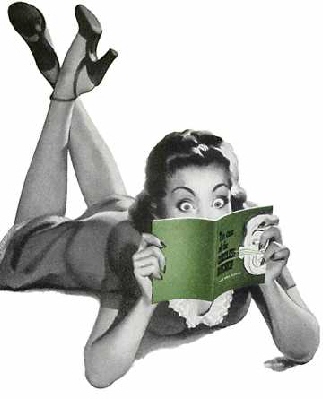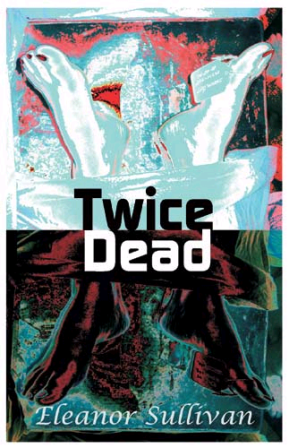Library
WHODUNIT/MEDICAL/CLASSIC/
AMATEUR SLEUTH MYSTERY
AMATEUR SLEUTH MYSTERY
TWICE DEAD
Saturday,
17 March, 1227 Hours
Hope died.
With no warning.
I should have been there. But, as I told Tim when he’d phoned that morning to tell me two nurses had called in sick, I’d promised to take the twins to the St. Patrick’s Day parade. Tim had said they could manage; he and Laura would work double shifts. I’ve spent all of my career at St. Teresa’s Hospital. They offered me my first job after graduation from nursing school, I stayed to get some experience and I’m still here, nurse manager of the intensive care unit, a job that expanded when the medical and surgical intensive care units were combined. Actually, my recently-changed title is patient care manager because someone figured out we were supposed to be managing patients, not nurses.
The rain had let up conveniently right before the parade started although a saturated blanket of clouds hung over downtown St. Louis. It wasn’t enough to dampen the spirits of the several hundred thousand rowdy spectators, all celebrating their Irish heritage, even if they happened to be German like us or Dutch or Scandinavian or Italian. St. Louis, like many cities home to descendants of European immigrants, celebrated St. Patrick’s Day in a big way. Outdoor decorations festooned most city streets, especially on the Southside. At the very least, an Irish flag hung suspended from a pole on the front porch. One home we’d passed on the way to the parade had green Christmas lights draped on its shrubbery and giant shamrocks plastered on front windows and door. Parade-goers, too, were decorated with green clothing and hats covered with shamrocks; some partiers even sported green hair. The green beer was flowing. Rambunctious spectators partied to the tunes of marching bands and bagpipes. A group of green- and white-dressed dancers, arms rigid and feet spinning to an Irish jig, were passing us when my cell phone rang. I tried to answer it but it cut off in mid-ring.
“Damn,” I said under my breath. The hospital provided cell phones to all the supervisors, but chose the cheapest, and most unreliable, service. I tapped Tina on the shoulder. “We have to go.”
Her face fell. “Not now, Aunt Monny.”
Monny is short for Monika and, strictly speaking, I’m not their aunt. Their mom is my cousin and we are both only children of twin brothers. So growing up Hannah and I had pretended we were sisters. Her children were the nearest thing I had to progeny.
“The clowns haven’t come yet!” Tina said. A favorite with the children, the clowns tossed candy to the crowds near the end of the parade.
Gena, sitting on the curb, cried, “Look, it’s a green Santa Claus!”
“That’s a leprechaun,” her sister told her authoritatively as the helium-filled character bobbed past.
“I have to find a phone booth. I have to call the hospital. It’s an emergency,” I told them.
“We can stay here.” Tina, older by fifteen minutes, put her arm around her sister. “We’re old enough. We’re not little kids any more.” A blond pony tail, pushed through the opening in the back of her Cardinal baseball cap, bobbed up and down emphatically. Gena’s pony tail nodded in agreement. “All right. You stay right here. On our corner.” Like many native St. Louisans, we always arrived early to claim a spot on the same corner. Ours was at Market and Eleventh Street.
“Okay?”
Two heads bobbed again.
“Don’t move, and stay together.”
They had turned to see the fire trucks, sirens blaring over the raucous sounds of the crowd, go by. A Dalmatian, green spots competing with black ones, sat calmly atop.
I pushed through the crowd in search of a pay phone and found one a block down the street. A heavy-set woman sat in the phone booth, cracking the door open with her foot. A young man with a bucket of green beer swinging precariously from his hand lounged against the open door. The woman inside was telling someone to do something before she got home. Or else. I tapped my foot impatiently.
My cell phone sounded a short ring again. The young man turned at the sound; his unfocused eyes indicated that he’d already had more than one bucket of beer. I smiled apologetically. “I need to call the hospital,” I explained.
He didn’t look impressed.
“I’m a nurse. They need me.”
Hope died.
With no warning.
I should have been there. But, as I told Tim when he’d phoned that morning to tell me two nurses had called in sick, I’d promised to take the twins to the St. Patrick’s Day parade. Tim had said they could manage; he and Laura would work double shifts. I’ve spent all of my career at St. Teresa’s Hospital. They offered me my first job after graduation from nursing school, I stayed to get some experience and I’m still here, nurse manager of the intensive care unit, a job that expanded when the medical and surgical intensive care units were combined. Actually, my recently-changed title is patient care manager because someone figured out we were supposed to be managing patients, not nurses.
The rain had let up conveniently right before the parade started although a saturated blanket of clouds hung over downtown St. Louis. It wasn’t enough to dampen the spirits of the several hundred thousand rowdy spectators, all celebrating their Irish heritage, even if they happened to be German like us or Dutch or Scandinavian or Italian. St. Louis, like many cities home to descendants of European immigrants, celebrated St. Patrick’s Day in a big way. Outdoor decorations festooned most city streets, especially on the Southside. At the very least, an Irish flag hung suspended from a pole on the front porch. One home we’d passed on the way to the parade had green Christmas lights draped on its shrubbery and giant shamrocks plastered on front windows and door. Parade-goers, too, were decorated with green clothing and hats covered with shamrocks; some partiers even sported green hair. The green beer was flowing. Rambunctious spectators partied to the tunes of marching bands and bagpipes. A group of green- and white-dressed dancers, arms rigid and feet spinning to an Irish jig, were passing us when my cell phone rang. I tried to answer it but it cut off in mid-ring.
“Damn,” I said under my breath. The hospital provided cell phones to all the supervisors, but chose the cheapest, and most unreliable, service. I tapped Tina on the shoulder. “We have to go.”
Her face fell. “Not now, Aunt Monny.”
Monny is short for Monika and, strictly speaking, I’m not their aunt. Their mom is my cousin and we are both only children of twin brothers. So growing up Hannah and I had pretended we were sisters. Her children were the nearest thing I had to progeny.
“The clowns haven’t come yet!” Tina said. A favorite with the children, the clowns tossed candy to the crowds near the end of the parade.
Gena, sitting on the curb, cried, “Look, it’s a green Santa Claus!”
“That’s a leprechaun,” her sister told her authoritatively as the helium-filled character bobbed past.
“I have to find a phone booth. I have to call the hospital. It’s an emergency,” I told them.
“We can stay here.” Tina, older by fifteen minutes, put her arm around her sister. “We’re old enough. We’re not little kids any more.” A blond pony tail, pushed through the opening in the back of her Cardinal baseball cap, bobbed up and down emphatically. Gena’s pony tail nodded in agreement. “All right. You stay right here. On our corner.” Like many native St. Louisans, we always arrived early to claim a spot on the same corner. Ours was at Market and Eleventh Street.
“Okay?”
Two heads bobbed again.
“Don’t move, and stay together.”
They had turned to see the fire trucks, sirens blaring over the raucous sounds of the crowd, go by. A Dalmatian, green spots competing with black ones, sat calmly atop.
I pushed through the crowd in search of a pay phone and found one a block down the street. A heavy-set woman sat in the phone booth, cracking the door open with her foot. A young man with a bucket of green beer swinging precariously from his hand lounged against the open door. The woman inside was telling someone to do something before she got home. Or else. I tapped my foot impatiently.
My cell phone sounded a short ring again. The young man turned at the sound; his unfocused eyes indicated that he’d already had more than one bucket of beer. I smiled apologetically. “I need to call the hospital,” I explained.
He didn’t look impressed.
“I’m a nurse. They need me.”

